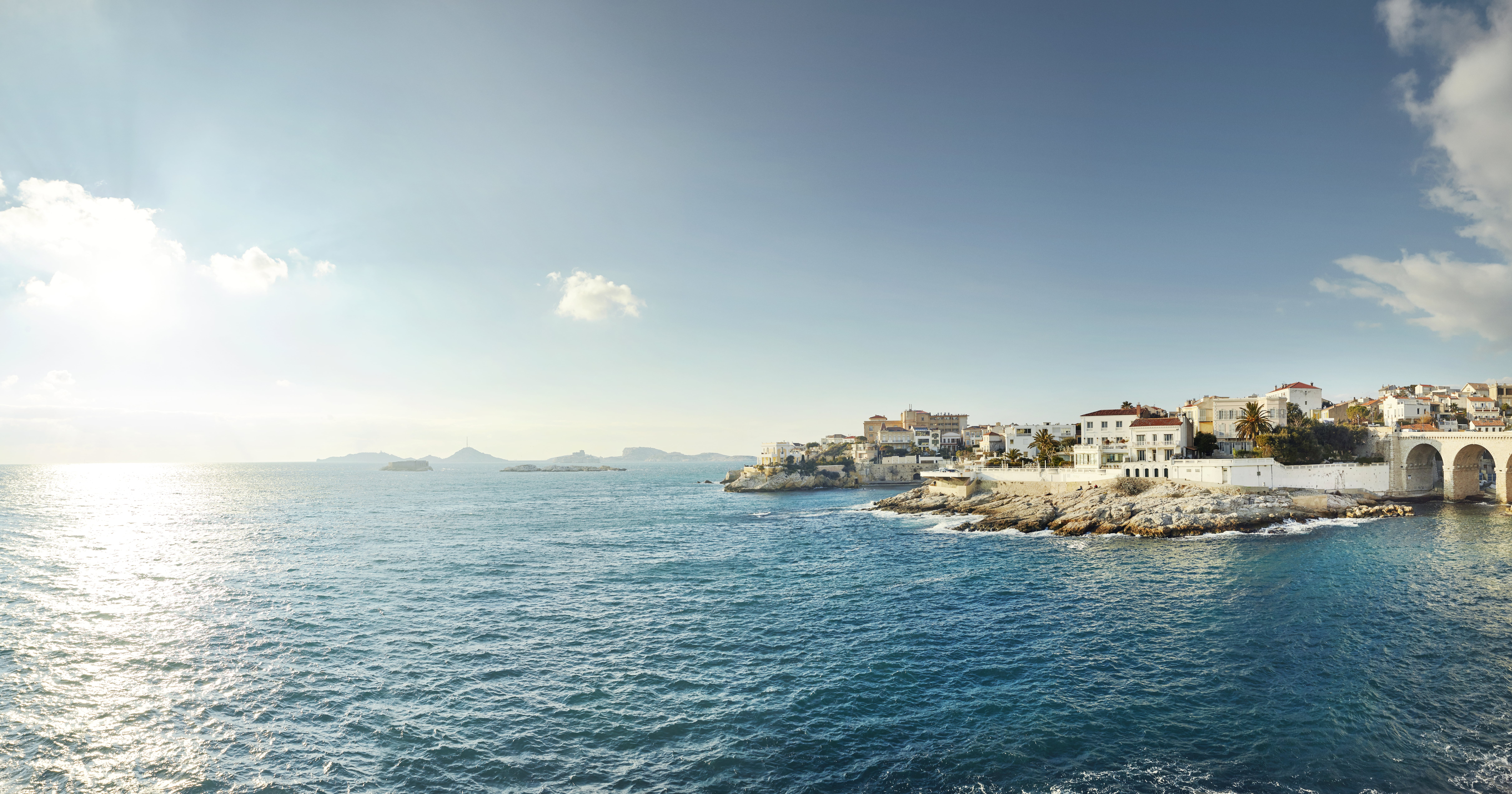Everyone deserves to explore the world, regardless of size. Yet many plus-size travelers struggle to find inclusive and comfortable options while vacationing.
Whether it’s cramped airplane seats, travel excursions that don’t account for diverse body types, or hotel rooms that lack the necessary accommodations, traveling while plus size does not come without its challenges. With the right preparation and research, however, traveling does not have to be an anxiety-inducing experience simply because of the size of your body.
Below, PS spoke with two plus-size travel experts to help all vacationers feel more confident traveling. With their first-hand experience and guidance, you’ll be ready to take on your next vacation with ease.
The Best Travel Tips for Plus-Size Travelers
The first thing you should do before booking a vacation anywhere is research. “Investing time in research helps you feel prepared, save money, and minimize potential challenges for a more enjoyable journey,” plus-size travel expert and content creator Jae’lynn Chaney says. Prior to your trip, she recommends looking into the location you want to travel to, the airline, the hotel, and any activities you may be interested in. To make things more comprehensive, here are some key components to consider for every part of your trip.
When Deciding on Location
Unfortunately, not all destinations are plus-size friendly, Chaney says. “Many destinations feature uneven terrain, steep hills, or unpaved paths, which can pose challenges for plus-size individuals – especially those with mobility issues,” she adds. Some places with older infrastructure may also lack modern accessibility features like ramps or elevators.
For this reason, Chaney recommends “researching how easy it is to get around the destination, including public transportation, sidewalks, and attractions.” You can also watch videos on TikTok or Instagram to get a “good idea of what to expect,” Kirsty Leanne, the owner of the Plus Size Travel Too travel blog, recommends. “It’s the most accurate way to see things in advance.”
That said, don’t let your size stop you from traveling to any location, even if it’s not the most accommodating. It’s your vacation, and you can tailor your itinerary by staying in a hotel that accommodates your size or picking activities that match your mobility level. In Leanne’s experience, she notes, “a lot of places I didn’t think would be plus size friendly actually ended up surprising me.”
Chaney says the most travel-friendly places in her experience have been Las Vegas; Maui, Hawaii; Toronto; and Barcelona, Spain. “These destinations are just a few examples of places that are known for their plus-size travel friendliness, offering inclusive amenities, accessible facilities, and a welcoming atmosphere for travelers of all sizes,” she adds.
Leanne, meanwhile, enjoyed Mexico. “Everyone was so friendly and welcoming,” she says, “and I didn’t feel like my size was ever an issue.”
When Packing
There are a few key items Chaney recommends to always pack for your vacations:
- Compression socks, to prevent swelling and deep vein thrombosis (DVT)
- Epsom salt, which helps with pain relief and swelling
- An anti-chafe remedy, like petroleum jelly or Megababe. Biker shorts also work!
- Supportive shoes for walking
- A seat cushion for extra support on your flight or drive
When Booking Your Stay
Inquire about room dimensions and bed-weight limits when choosing where you’ll stay, Chaney says. You can call the hotel directly or look this up on the hotel’s website. Also, if mobility is an issue for you, opt for a hotel, Airbnb, or other accommodation that either has a working elevator or sits on the ground floor.
If you have any concerns about booking a hotel room, advocate for yourself. “Communicate your needs and preferences to the hotel,” Chaney says. Depending on what the request is, they may be able to help you.
When Flying
When booking a flight, Chaney recommends looking for airlines that offer a “customer of size” policy, like Southwest. The airline allows customers who “encroach upon any part of the neighboring seat(s)” to “proactively purchase the needed number of seats prior to travel to ensure the additional seat(s) is available.” Per the Southwest policy, you can either pay for both seats upfront, and then, following the flight, contact the airline for a refund for one seat, or you can discuss your seating needs with the customer service agent at the departure gate. Just note that if the flight is full, a customer service agent may not be able to accommodate your request.
If you’re looking to book outside Southwest, look into airlines with seat upgrades that offer more leg room, like premium economy seats or business class, Chaney says. If you don’t want to spend additional money, however, Chaney recommends sitting in an aisle seat. Whatever you decide, most airlines will have their seat dimensions listed on their website if it’s helpful to know what the space will look like before entering the flight.
Once on the flight, if you think you may need a seatbelt extender, ask the flight attendant immediately upon boarding the plane. “Asking when you board is easier, as they’ll either hand it to you there and then, or bring it to you in your seat,” Leanne says. Do not bring your own seat belt extender though, as it may not be FAA-approved.
Lastly, if booking a long flight, Chaney recommends choosing a flight option with layovers. If you’re a plus-size traveler who can’t fit comfortably in the plane lavatory, this allows you to have bathroom breaks when you need it.
When Driving
If you’re renting a car, pick larger-sized vehicles since these “accommodate plus-size travelers better,” Chaney says. Unlike when flying, you can purchase and bring your own universal seat belt extender if you want some additional comfiness while in the car. This seat belt extender on Amazon is easily adjustable and extends 14 inches.
If you’re driving to your destination and using your own car, take as many breaks as you need during the trip to stretch and move your body.
When Planning Your Itinerary
Whether you want to do an activity like scuba diving, horseback riding, or getting a massage, look for activities that are suitable for people of all body types and abilities. “Find tours, attractions, and experiences that prioritize inclusivity and provide comfortable seating or equipment for everyone,” Chaney says. She also recommends you “check the weight limits on activities and excursions beforehand to ensure a smooth experience.”
If sightseeing is more your thing, understand your limitations and mobility restrictions. “While some individuals may be able to navigate challenging terrain or historic sites with ease, others may face greater difficulties due to their size or mobility challenges,” Chaney says. For this reason, do some research on the sightseeing destination to know how far you would need to walk, how many steps there are, and what people’s general review of the experience is.
When eating out, it’s never a bad idea to call the restaurant beforehand to ask about their chairs. Prioritize restaurants that have booth options or chairs with no arms on them. (And if you decide to grab a bite to eat with no notice, don’t be afraid to specifically ask the staff for a booth or chair with no arms.)
“By researching accessibility options, accommodation features, and activity suitability beforehand, individuals can make informed decisions about where to travel and how to plan their trips effectively,” Chaney says.
Additional Resources
While it’s normal to feel anxious or stressed planning for a trip, focus on how much fun you’ll have discovering a new destination instead of thinking about the potential challenges, Chaney says. And if you’re ever uncomfortable, don’t be afraid to speak up for yourself. “For me, it’s all about advocating for yourself. Whether that’s asking for a more comfortable seat in a restaurant or asking for a different seat on a flight, the more you start advocating for yourself the easier travel will be,” says Leanne.
For additional resources, check out Leanne’s website, Plus Size Travel Too, which is a resource and hub for plus-size travelers, and Chaney’s TikTok, which contains additional videos on plus-size resources and advice.
Taylor Andrews is a Balance editor at POPSUGAR who specializes in topics relating to sex, relationships, dating, sexual health, mental health, and more. In her six years working in editorial, she’s written about how semen is digested, why sex aftercare is the move, and how the overturn of Roe killed situationships.




